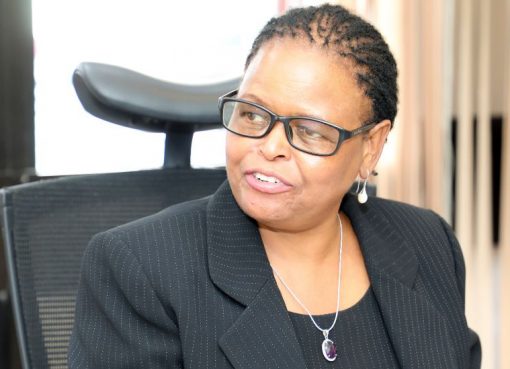The construction of 605 houses in Nakuru, under the ambitious Affordable Housing Project has been launched.
The Principal Secretary (PS) for Housing and Urban Development, Mr Charles Hinga, said the prices of the houses will range between Sh1.5 million and Sh4 million, while initial owners will not be allowed to sell their units before the lapse of 8 years to avoid price speculation.
Mr Hinga who was accompanied by Governor Lee Kinyanjui, said the low-cost affordable housing units shall be met through budgetary allocation, partnerships between financial institutions, private developers, cooperatives and manufacturers of building materials.
The project which is expected to be completed within 18 months and made up of 1-bedroom, 2-bedrooms and 3-bedrooms apartment units is a partnership between the County Government, the State Department for Housing and Urban Development and the private sector developer, Kings Pride Properties.
He advised Kenyans to register on the www.bomayangu.go.ke portal and begin making contributions through the platform and select their housing preference from the available or upcoming housing stock.
Mr Hinga noted that though the annual demand in Kenya for affordable housing for the middle and low income earners was 170,000 units, a mere 1,000 units are built every year, a situation he said had been worsened by official policy misalignments, outdated building code and low number of housing mortgages in the country.
He said Kenya had only 25,000 housing mortgages catering for a population of over 40 million people, a situation the Governor noted had aggravated the housing crisis in the country.
“The mortgages are skewed. 17,000 of them are not market based as they have been advanced to individuals by their employers. This means Kenya has less than 10,000 market-based mortgages,” he stated.
Governor Kinyanjui said the project that will complement the ongoing construction of 2,400 houses in Naivasha, targets workers earning between Sh15, 000 and Sh.150, 000.
The houses in Nakuru will be built on a 10 acre-land in Bondeni Estate within Nakuru Town East Sub- County, while those within Naivasha are being constructed on a 55-acre parcel of land along the Nairobi-Nakuru highway near GK Prisons.
The Housing Units are part of a larger scheme to deliver 500,000 houses to those in lower-income segments in Kenya towards fulfilment of the ‘Big 4 Agenda’ on housing.
Mr Kinyanjui noted that realization of the provision of Affordable Housing is not only in President Uhuru Kenyatta’s ‘Big 4 agenda’, but it is also part of the fulfillment of the Constitution Chapter 4, Article 43 which guarantees every Kenyan the right to accessible and adequate housing and reasonable standards of sanitation.
The Governor stated that Counties have signed memoranda with the National Government to construct at least 2,000 affordable housing units per year.
Construction of the houses comes at a time when demand for housing in Nakuru is rising, as local steel and cement manufacturers, animal feeds makers and dairy industries companies set up shop at the Salgaa industrial Zone.
Several local and foreign investors have also expressed interest in setting up manufacturing concerns at the new Industrial Zone within Rongai Sub- County.
Naivasha has attracted both local and foreign investors in the industrial sector. Besides Standard Gauge Railway that is linked to the Meter Gauge Railway at Mai-Mahiu, the Inland dry port, a business park being established by Kenya Electricity Generating Company (KenGen) and an Industrial Park set up by Oserian Company are also expected to draw firms.
“As Nakuru and Naivasha are homes to a multi-billion-shilling flourishing horticultural sector, a thriving hospitality industry, and fast rising to a commercial hub in East Africa, obviously, the demand for housing is expected to shoot up.
That is why we are fast tracking projects that will ensure the growing demand for housing for workers in the various companies that seek to bring their investments is met.
So far Nakuru is among counties in urgent need of affordable houses. Over 26 per cent of Kenyans live in cities and the urban population is growing at a rate of 4.2 per cent every year,” said Mr Kinyanjui.
Two years ago, the County Government reclaimed land in Nakuru and Naivasha meant for housing which had been grabbed, paving way for the project to kick-off.
Mr Kinyanjui also urged County Governments to set aside money to support the Affordable Housing project.
“For this ambitious project to be successful, County Governments must closely work with the National Government,” he said.
The World Bank last year selected Nakuru as the pioneer county for the realization of the ambitious half a million houses project by 2022.
The multilateral lender said Nakuru had most of the critical infrastructure needed for the construction.
Nakuru is among 23 counties that have provided land for the affordable housing programme. It has been grappling with housing shortages for years. There is a shortfall of both residential and commercial units.
A report by the Kenya National Bureau of Statistics (KNBS) 2020, detailed that landlord were shifting focus to building smaller and affordable houses as demand increases, land space diminishes and the cost of living rises.
According to the KNBS report, Nakuru requires at least 10,000 housing units to meet the current demand. However, only about 3,000 units are available, creating a shortfall of 8,000 units.
Mr Kinyanjui revealed that to ensure that only deserving cases get the units in Naivasha and Nakuru, both the National and County Government will negotiate reasonable mortgage deals with various banks, where people can go and inquire for a pre-approval for the balance.
“The National Government established the Kenya Mortgage Refinance Company, which works with the banking sector and the cooperative movement through SACCO’s, to make available affordable mortgage finance for those wishing to own a home.
“The Kenya Mortgage Refinance Company will help to extend the tenure of housing loans from the current average of seven years to at least twenty years. It will also assist in driving interest rates on mortgages to single digits,” he added.
By Jane Ngugi and Dennis Rasto





